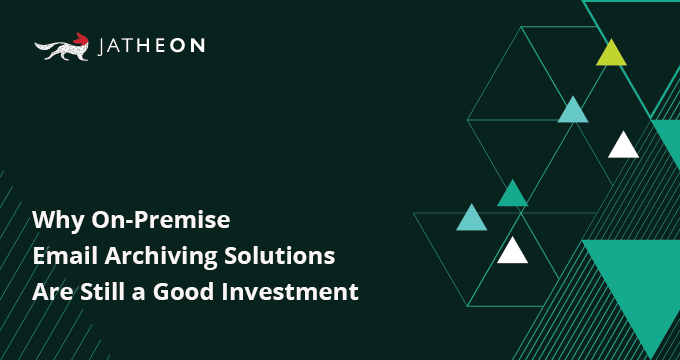In 2025, email still plays a central role in modern business. It’s used to share information, discuss decisions, send business documents, and communicate changes. This brings us to the issue of email retention — emails are important documents that need to be retained just like any other business record. Organizations use email archiving solutions to […]
See all entries tagged email compliance
Understanding Email Compliance – Your Guide to Secure and Legal Communication
With most of our daily business communication happening over email, business owners are aware of their responsibilities toward email archiving under regulatory compliance. But do you know what email compliance actually is, why it’s important, and how to ensure it for your business? This article will help you understand everything you need to know about […]
Archiving Talks – Common Data Retention Practices
How long do companies typically retain email? How will your data retention policies reflect the various retention laws and best practices? We talked to Marko Dinic, CEO of Jatheon Technologies and Jeff Marlow, VP Business Development to get some answers. Based on your experience so far, do companies retain what is in the archive forever? […]
Why On-Premise Email Archiving Solutions Are Still a Good Investment [White Paper]
TABLE OF CONTENTS I Introduction: The Evolution of Email Archiving II The Top Benefits of Archiving Enterprise Email III Different Types of Deployment: On-Premise, Cloud, Hybrid, Virtual Appliance and Native IV Cloud-Based vs. On-Premise Archiving Solutions: An Overview V When Cloud Solutions Don’t Work: A Case for On-Premise VI Conclusion Introduction: The Evolution of Email […]
Moving Your Email Archive to the Cloud: What You Need to Know
We are already aware that email archives are precious for business continuity, legal discovery and staying in line with email compliance regulations. A lot of companies have recently abandoned their in-house archives and flocked towards the cloud. Cloud services are apps and programs that run offsite and are provided by third-party service providers. They’re becoming […]












